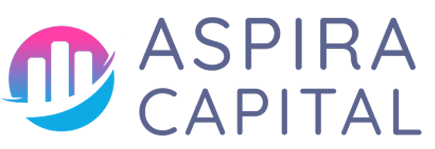Table of Contents
- The Importance of Financial Preparedness
- Assessing Your Current Financial Status
- Budgeting for Success
- Managing Cash Flow
- Investing in Growth
- Building Fiscal Resilience
- Navigating Tax Considerations
- Leveraging Technology for Financial Management
The Importance of Financial Preparedness
In today’s fast-paced business environment, Preparing Your Business for a Strong Q2: Financial Tips is essential for sustainability and success. As we approach Q2, ensuring financial preparedness can help mitigate risks and capitalize on new opportunities. Financial preparedness encompasses not only anticipating market changes but also ensuring alignment between financial strategy and business objectives.
Assessing Your Current Financial Status
The first step in financial preparedness is to conduct a thorough assessment of your current financial health. This involves analyzing key financial statements, including:
- Balance Sheet: Understand your assets, liabilities, and equity to gauge financial stability.
- Income Statement: Evaluate revenue streams, expenses, and profits to identify areas for improvement.
- Cash Flow Statement: Monitor cash inflows and outflows to ensure you maintain liquidity.
Utilize tools and formulas for ratio analysis, which can help clarify your financial standing and indicate necessary adjustments.
Budgeting for Success
Creating an effective budget is crucial for maximizing your business potential in Q2. Here are key budgeting practices to consider:
- Set Clear Financial Goals: Define measurable and specific financial objectives for Q2, such as revenue targets or expense reductions.
- Category Allocation: Allocate budgets per department or project, ensuring funds align with strategic priorities.
- Forecast Variations: Use historical data to predict fluctuations and adjust budgets accordingly to mitigate adverse impacts.
Regularly review and update your budget to ensure it remains relevant as circumstances change.
Managing Cash Flow
Effective cash flow management is vital for sustaining operations and ensuring growth. Utilize the following strategies:
- Track Receivables: Implement efficient invoicing processes to minimize the time it takes to receive payments.
- Negotiate Payment Terms: Work with suppliers to establish favorable payment terms that extend your cash flow cycle.
- Emergency Funds: Maintain a buffer to cover unforeseen expenses or downturns in revenue.
Consider employing cash flow forecasting tools to project future cash needs accurately.
Investing in Growth
As you prepare for Q2, evaluate opportunities for strategic investments that can drive growth. Consider the following:
- Technology Upgrades: Invest in tools and systems that enhance efficiencies, such as CRM software or automation tools.
- Staff Training: Allocate resources toward employee development to improve productivity and innovation.
- Marketing Initiatives: Increase the marketing budget for campaigns targeting new customer segments or geographical areas.
Explore financing options, such as SBA loans or crowdfunding, to support your growth initiatives.
Building Fiscal Resilience
Building resilience against economic fluctuations is essential for long-term sustainability. To enhance your fiscal resilience, consider:
- Diverse Revenue Streams: Avoid dependency on a single source of income by diversifying your offerings.
- Cost Management Practices: Implement cost-control measures without sacrificing quality to maintain profitability during downturns.
- Scenario Planning: Prepare for various economic scenarios when strategizing to better respond to unexpected changes.
Regular stress testing of your financial model can help forecast performance during adverse conditions.
Navigating Tax Considerations
As you prepare for a robust Q2, tax strategies should not be overlooked. Here are key insights:
- Understand Deductions: Ensure you are claiming all available tax deductions to minimize your liabilities.
- Consider Timing: Engage in year-end tax planning to optimize income recognition and deductions.
- Consult Professionals: Work with accountants or tax advisors to navigate complex regulations effectively.
Stay updated on local tax laws through reliable resources such as the IRS website to avoid surprises.
Leveraging Technology for Financial Management
Technology plays a vital role in enhancing financial management practices. Consider these technological solutions:
- Financial Management Software: Utilize software that integrates budgeting, forecasting, and analytics for streamlined operations.
- Automated Workflows: Implement automation for invoicing, payroll, and expense tracking to save time and reduce errors.
- Data Analytics Tools: Employ analytics to derive insights from financial data, helping inform strategic decisions.
Stay ahead by adopting cutting-edge financial technology that promotes efficiency and accuracy in your operations.

